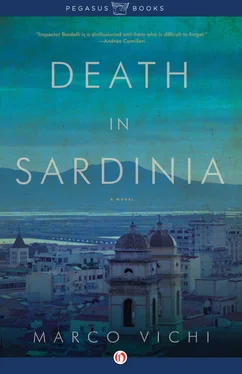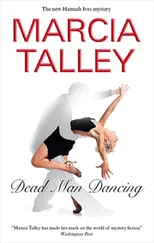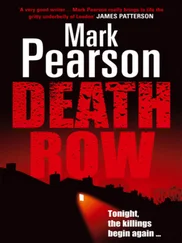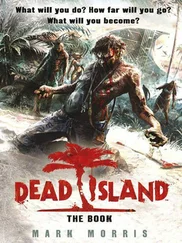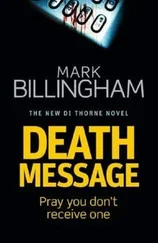Marco Vichi - Death in Sardinia
Здесь есть возможность читать онлайн «Marco Vichi - Death in Sardinia» весь текст электронной книги совершенно бесплатно (целиком полную версию без сокращений). В некоторых случаях можно слушать аудио, скачать через торрент в формате fb2 и присутствует краткое содержание. Год выпуска: 2014, ISBN: 2014, Издательство: Pegasus Books, Жанр: Полицейский детектив, на английском языке. Описание произведения, (предисловие) а так же отзывы посетителей доступны на портале библиотеки ЛибКат.
- Название:Death in Sardinia
- Автор:
- Издательство:Pegasus Books
- Жанр:
- Год:2014
- ISBN:978-1-4804-4794-3
- Рейтинг книги:5 / 5. Голосов: 1
-
Избранное:Добавить в избранное
- Отзывы:
-
Ваша оценка:
- 100
- 1
- 2
- 3
- 4
- 5
Death in Sardinia: краткое содержание, описание и аннотация
Предлагаем к чтению аннотацию, описание, краткое содержание или предисловие (зависит от того, что написал сам автор книги «Death in Sardinia»). Если вы не нашли необходимую информацию о книге — напишите в комментариях, мы постараемся отыскать её.
Death in Sardinia — читать онлайн бесплатно полную книгу (весь текст) целиком
Ниже представлен текст книги, разбитый по страницам. Система сохранения места последней прочитанной страницы, позволяет с удобством читать онлайн бесплатно книгу «Death in Sardinia», без необходимости каждый раз заново искать на чём Вы остановились. Поставьте закладку, и сможете в любой момент перейти на страницу, на которой закончили чтение.
Интервал:
Закладка:
Marco Vichi
Death in Sardinia
For your good luck
may the moon shine bright your every night,
may you never know sorrow,
may the sun light up your every day,
such is my good wish,
from now until God wills.
Grazia DeleddaFlorence, 12 December 1965
Sergeant Baragli lay in the bed nearest the window, a small tube stuck in his arm. He was looking outside. Behind the hospital buildings he could just glimpse the tree-covered hills of Careggi. The small white clouds dotting the sky looked like a flock of sheep. According to the old wives’ tales, it would be raining cats and dogs in a couple of hours.
Baragli’s face was covered in sweat and very pale. He’d lost a good ten pounds in just a few days. He hadn’t yet noticed that he had a visitor. Bordelli brought a chair close to the bed and unbuttoned his jacket. It was very hot in the room.
‘How’s it going, Oreste?’ he asked.
‘Inspector! I didn’t see you come in. My wife left just a few minutes ago.’
‘I saw her downstairs. When are they going to send you home?’ Bordelli asked, pretending not to know that the doctors considered him a lost cause.
‘I don’t know anything yet,’ the sergeant said. He was short of breath and spoke with difficulty. Just over sixty years old, he’d spent his whole life on the police force and had had a rough time of it during the twenty-year reign of Fascism, given his lack of sympathy for the Mussolini regime. He’d retired three years before and fallen sick the following month. He’d had several operations on his stomach, the last only a few days before.
‘How’s your son?’ Bordelli asked.
‘He’s still in Germany, Inspector. He might come for Christmas.’
There were five beds in the room, all taken. Some of the other patients had visitors. One looked rather young. His face was yellow and gaunt, but he tried to smile. His wife had brought him some newspapers.
‘You need anything, Oreste?’ Bordelli asked.
‘I’d like a book, a good book I could get excited about.’
‘I’ll bring you one next time.’
‘Thanks, Inspector. Everything all right with you?’
‘I wouldn’t go that far …’
‘You know what? If I were reborn, I would become a cop all over again,’ Baragli said, looking resigned. The inspector smiled. He felt sorry for the old policeman wasting away with illness. Baragli had always been nice to everyone, even those he arrested. The prostitutes were fond of him and called him nonno . But there were certain categories of criminals Oreste had never been able to stomach, especially pimps. Whenever he had one within reach he’d slap him around, and nobody had ever bothered to stop him. They were good, healthy slaps, the kind a parent deals out to a child.
‘Any murders lately, Inspector?’ Baragli asked.
‘Nah, nothing new.’ The inspector started telling him a few anecdotes about things that had happened at headquarters. He knew Baragli enjoyed hearing talk of his colleagues. Every so often the old sergeant cast a glance out the window. His lips were shrivelled and his sparse hair had turned completely white.
He had aged a great deal in the past six months. Trying to sit up in bed, he groaned in pain and brought a hand to his stomach, grimacing.
‘What’s wrong, Oreste?’ asked Bordelli, standing up.
‘It’s nothing, just the stitches pulling,’ said Baragli, falling back on to the pillows.
‘Were you looking for something?’
‘My wife brought me some playing cards, they’re in the drawer there.’
The inspector grabbed the new deck of Modiano cards and they started playing briscola 1while making small talk. The sergeant played with the tube in his arm, moving his hands slowly.
Bordelli lost the game and shuffled the cards before dealing again. Baragli wiped his face with the handkerchief he always kept within reach.
‘The minute I get out of here I’m going to go fishing for a year,’ he said.
‘We’ll go together — at least once,’ Bordelli lied. They played for a while longer, as Baragli grew weaker and weaker. His hands shook and he had trouble breathing.
‘I hope to be home by Christmas at least,’ he said as the inspector reshuffled the deck. Bordelli had lost again. He couldn’t quite get into the game.
A fine rain began to fall outside. The drops left bright streaks on the dirty windowpanes.
‘My wife said Rita Pavone was on the telly yesterday. Did you see her?’ the sergeant asked.
‘I got home too late.’
‘I really like that girl … Your turn, Inspector.’
By nine o’clock the visitors had all left. One of the older patients had fallen asleep and was snoring lightly, eyes half open. He was in the bed directly opposite Baragli’s, and the skin on his face seemed stretched right over the bone. At last the inspector won a game. He looked at his watch.
‘I have to be going,’ he said. He put the cards back in the drawer and stood up, resting a hand on one of Baragli’s, which was thin and covered with veins.
‘’Bye, Oreste.’
‘Thanks, Inspector. Give everyone my best.’
‘I’ll be back soon,’ said Bordelli, squeezing the man’s fingers. When he made to leave, Baragli held him back.
‘How’s the Sardegnolo ?’
‘If Piras could hear you …’ 2
‘He must be used to it by now. Can he walk yet?’
‘Only on crutches at the moment, but he says he’s making progress.’
‘Tough as nails, those Sardinians.’
‘He’d like to return to work in January, but I don’t think he’ll manage it before March …’
‘I like that kid,’ said Baragli.
‘Me too.’
‘Give him my regards.’
‘Next time I’ll bring you a book,’ Bordelli said, half smiling. He headed towards the exit, feeling terribly sad. He turned round in the doorway to wave goodbye, but the sergeant had turned towards the window and didn’t see him.
Piras was in Bonarcado, Sardinia, at the home of his father Gavino, a companion-in-arms of Bordelli’s during the war of liberation.
Three months earlier, during a routine check on the Via Faentina, Piras’s squad had stopped an Alfa Romeo Giulietta with Bologna licence plates, but instead of taking out their papers, the four men in the car had pulled out machine guns and pistols and started firing madly. Turning the car promptly around, they escaped the same way they had come, leaving three policemen and a great deal of blood on the road behind them. Officer Cassano died on the spot, struck in the head by a burst of machine-gun fire; Sbigoli came away with just an arm broken in two places; and Piras was rushed to hospital with his face covered in blood. He seemed to be at death’s door, but the blood pouring over his face and chest came from a superficial wound on his forehead. Another bullet had struck him in the right shoulder and come out the other side without causing any serious damage. He’d been more seriously wounded in the legs, however: three bullets had entered his right thigh, shattering the femur, and two had lodged in his left leg, one very close to the knee. All in all, he’d been quite lucky, as the men in the Giulietta had aimed for the head and chest. The first shots had hit Piras in the shoulder, knocking him down, and the only reason the subsequent bursts of fire hadn’t reached their target was because it is much more difficult to hit a man lying down than one on his feet.
The Giulietta was later found abandoned at the side of the road only a few miles from the shoot-out, having obviously been stolen. Bordelli had personally led the manhunt, which ended a few days later in the countryside near Bivigliano with two arrests and two dead bodies. The two deaths could probably have been avoided, but the policemen who had flushed out the fugitives didn’t feel much like holding their fire.
Читать дальшеИнтервал:
Закладка:
Похожие книги на «Death in Sardinia»
Представляем Вашему вниманию похожие книги на «Death in Sardinia» списком для выбора. Мы отобрали схожую по названию и смыслу литературу в надежде предоставить читателям больше вариантов отыскать новые, интересные, ещё непрочитанные произведения.
Обсуждение, отзывы о книге «Death in Sardinia» и просто собственные мнения читателей. Оставьте ваши комментарии, напишите, что Вы думаете о произведении, его смысле или главных героях. Укажите что конкретно понравилось, а что нет, и почему Вы так считаете.
